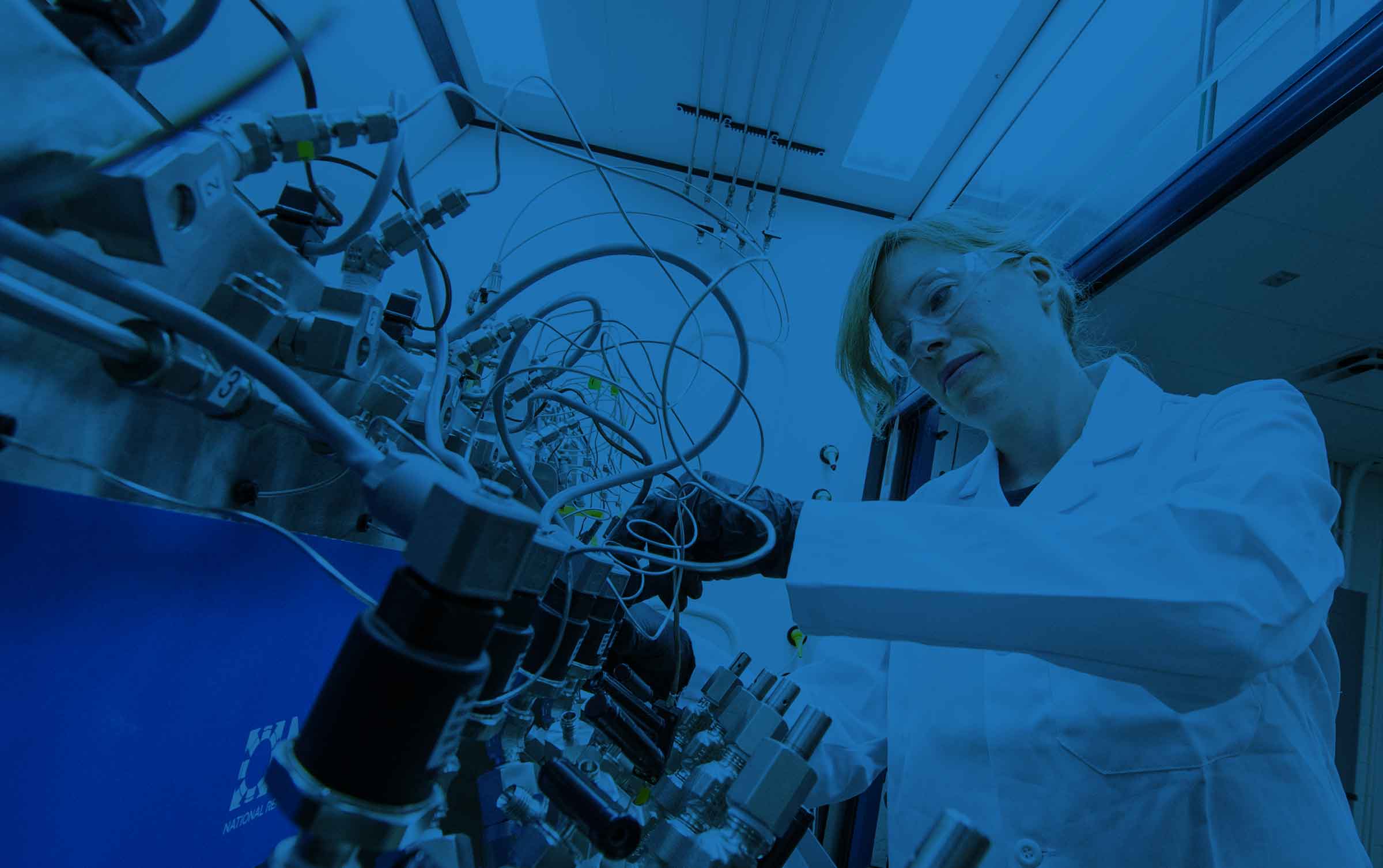Upgrading of Lignin and Biologically Derived Intermediates

Improving process economics by converting low-value biochemical intermediates and lignin waste streams into high-value chemicals and fuels
Overview:
ChemCatBio has extensive expertise in the production of fuels, chemicals, and target intermediates from biochemically derived products, sugars, and lignin. This research couples novel separations schemes for the recovery of targeted chemicals from bioprocess streams and fermentation broth with subsequent catalytic upgrading to final products, enabling holistic bioprocess evaluation. Research is focused in two major areas:
- Catalytic lignin depolymerization and upgrading: Efforts in catalytic lignin depolymerization include the use of reductive, oxidative, enzymatic, solvent-based hydrolytic, and base-catalyzed approaches, catalyst evaluation at the small scale in batch and flow reactors, and advanced analytical capabilities to identify and quantify lignin-derived compounds. Typical substrates include whole biomass for catalytic fractionation as well as residual lignin substrates following polysaccharide conversion for catalytic lignin depolymerization. Lignin depolymerization products are upgraded using biological and chemo-catalytic approaches, and characterized using a comprehensive suite of methods. We have extensive analytical equipment and expertise for the characterization of lignin, both in the solid form (including in planta) and lignin depolymerization products in both organic and aqueous soluble phases.
- Catalytic upgrading of fermentation products such as carboxylic acids, alcohols, and furans: This research focuses on converting sugar-derived intermediates into hydrocarbon fuel products, primarily paraffins, which are compatible with blending into gasoline, jet, or diesel fuels. Utilizing dual fixed catalyst beds, anaerobically derived short chain acids can be coupled via ketonization and then converted into linear and branched hydrocarbon fuels via tandem reduction/dehydration chemistry in a single reactor. Free fatty acids and triglycerides produced in microbial fermentation can be upgraded to fungible hydrocarbon fuels with lower cloud points through hydrodeoxygenation and hydroisomerization. Lastly, methyl furan, which can be produced in high yield from furfural by established processes, can be converted to hydrocarbons with excellent jet and diesel fuel properties by acid catalyzed oligomerization and hydrodeoxygenation.
Additional Information:
Chemical Energy Storage R&D at Los Alamos National Laboratory
Heterogeneous Catalysis for Thermochemical Conversion R&D at the National Laboratory of the Rockies
National Laboratories:
Los Alamos National Laboratory
National Laboratory of the Rockies
Pacific Northwest National Laboratory